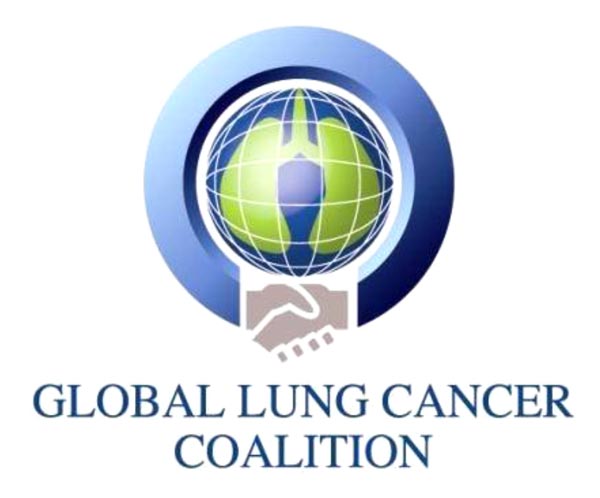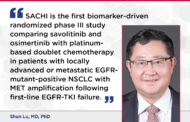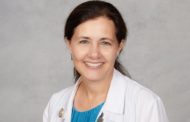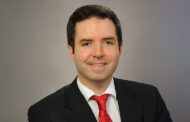
As she introduced a WCLC 2022 educational session presented by IASLC and the Global Lung Cancer Coalition, moderator Carolyn Aldige, founder and CEO of the Prevent Cancer Foundation, recognized that much has changed since the lung cancer community last came together for the world conference in Barcelona in 2019.
The COVID-19 pandemic affected lung cancer prevention, diagnosis, and management in most countries around the world, and researchers, clinicians, and patient advocates are trying to understand exactly what impact the pandemic had and will continue to have on lung cancer.
During the session, David Baldwin, MD, of Nottingham University Hospitals National Health Service Trust, Nottingham, UK, discussed the experience in the UK trying to mitigate the effects of COVID-19.
“The pandemic has had a major impact on lung cancer, reversing much of the progress made during the past 20 years,” Dr. Baldwin said.

Watch On-Demand: Breaking Down Roadblocks to Lung Cancer Care in 2022
In-person and virtual attendees can watch WCLC 2022 sessions on-demand through December 31, 2022. If you couldn’t make the meeting, it’s not too late to register and enjoy on-demand content through the end of the year.
Before the pandemic, one meta-analysis showed that reduced time to diagnosis of lung cancer was associated with better outcomes and worse outcomes were associated with diagnosis at later stages in three-quarters of studies looking at these associations. Dr. Baldwin dubbed this the “sicker-quicker” effect.
This reinforces the importance of getting patients fast access to healthcare.
When the COVID lockdown occurred, data from the UK showed a 68% decrease in lung cancer-related referrals and bookings, and these rates have still not recovered, Dr. Baldwin said. There has also been a 38% decrease in incidence of lung cancer, and a 30% decrease in lung cancer resections, neither of which have recovered to pre-COVID levels.
“This means people were dying from lung cancer but were never diagnosed with lung cancer,” Dr. Baldwin said.
The COVID-19 lockdown was a natural experiment that turned off early presentation activity and severely limited access. It resulted in fewer patients presenting and patients presenting at a later stage. That resulted in a poor clinical experience that Dr. Baldwin compared to working in lung cancer as it was 20 years ago.
Dr. Baldwin said that several things have been done in response. From a national perspective the National Health Service produced a guide to try to differentiate COVID from cancer called “Differentiating the Cs—Covid Vs. Cancer” and produced a lung cancer management pathway. They also changed the urgent phone line algorithm to trigger a clinical response.
“We emphasized the need for screening, earlier diagnosis, and faster diagnosis,” said Dr. Baldwin, who was one of the authors of the guide. “The pandemic has justified many of the initiatives that we already had, and there has been a huge effort to mitigate the effects of what has happened.”
Later in the session, advocate Merel Hennink, of the Global Lung Cancer Coalition, the Netherlands, spoke on the impact of COVID-19 from the patient perspective, and discussed data from an annual global patient experience survey. A 21-question survey addressing topics including screening, the emotional impact of lung cancer diagnosis, and COVID-19, was completed by 555 patients in 21 countries from December 2021 to January 2022. Hennink said respondents were mostly women and those with non-small cell lung cancer, predominantly adenocarcinoma.
Looking at the impact of COVID-19, 47% of respondents said there has been no difference in how easy it has been to contact their treatment team, and 50% said their treatment had continued as normal. Most respondents reported that they would prefer to see their treatment team in person.
These two speakers were joined by several others who addressed roadblocks to lung cancer care in 2022, including Shani Shilo, DMD, PhD, founder and CEO of the Israeli Lung Cancer Foundation, and Matthew Peters, MD, Concord Hospital, Australia, who both spoke about going from pilots to programs for lung cancer screening in their own countries. Finally, Lauren Pretorius, of the Global Lung Cancer Coalition, South Africa, spoke about optimizing telehealth for the lung cancer patient.





